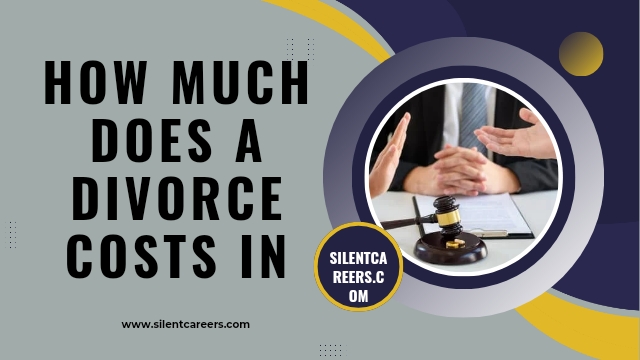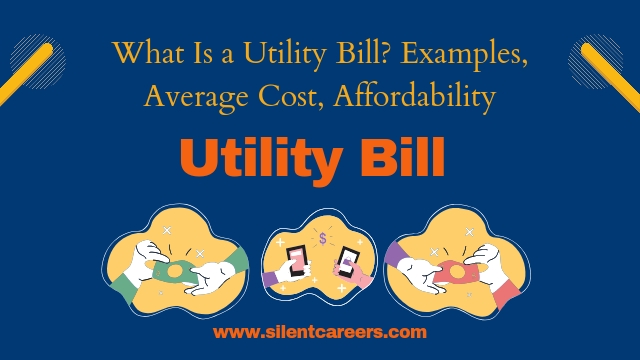
An injunction is a court order that compels a party to do or refrain from doing a specific act. In the context of real estate, property injunctions are legal remedies used to prevent or halt actions that could harm or infringe upon property rights. These injunctions can be temporary or permanent, and they are typically issued in response to specific situations that warrant judicial intervention.

What Is an Injunction? Definition & injunction meaning
An injunction is a court order issued to a person or entity instructing them to either take a specific action or refrain from doing something. It’s a tool used to enforce the law and prevent potential harm.
An injunction is a legal order issued by a court that requires a party to do or refrain from doing specific acts. Injunctions are typically used to prevent harm, maintain the status quo, or enforce rights. They can be temporary (preliminary or temporary injunctions) or permanent, depending on the circumstances of the case.
Injunctions are powerful legal tools used to prevent harm, enforce rights, and maintain order, ensuring that parties adhere to legal and equitable standards. Understanding the different types and their implications is crucial for navigating legal disputes effectively.
Types of Injunctions
Injunctions are powerful legal remedies used to compel or prevent actions to protect the rights of the parties involved in a legal dispute. There are several types of injunctions, each serving different purposes and issued under different circumstances. Here are the main types:
- Temporary Restraining Order (TRO):
- Purpose: Issued to provide immediate, short-term relief to prevent imminent harm before a formal hearing can be held.
- Duration: Typically lasts for a few days to a couple of weeks.
- Example: A TRO might be issued to prevent a party from demolishing a building that is the subject of a legal dispute.
- Preliminary Injunction:
- Purpose: Issued early in a lawsuit to prevent harm or maintain the status quo until the court can make a final decision.
- Duration: Remains in effect until the conclusion of the trial or further court order.
- Example: A court might issue a preliminary injunction to stop a company from using a contested trademark during litigation.
- Permanent Injunction:
- Purpose: Issued as a final judgment in a case, requiring a party to permanently do or refrain from specific actions.
- Duration: Lasts indefinitely unless modified or dissolved by the court.
- Example: A permanent injunction might prohibit a polluting company from continuing harmful environmental practices.
- Mandatory Injunction:
- Purpose: Requires a party to take a specific action rather than just refrain from an action.
- Example: A court might issue a mandatory injunction requiring a landlord to make necessary repairs to a rental property.
- Prohibitory Injunction:
- Purpose: Requires a party to refrain from doing a specific act.
- Example: A prohibitory injunction might prevent a neighbor from building a fence that encroaches on another’s property.
- Interlocutory Injunction:
- Purpose: Issued during the course of litigation to prevent harm or preserve the status quo until a final decision is reached.
- Duration: Typically lasts until the final judgment or further court order.
- Example: An interlocutory injunction might prevent the sale of disputed property until ownership is determined.
- Permanent Restraining Order:
- Purpose: Similar to a permanent injunction but often used in cases involving personal safety, such as domestic violence.
- Duration: Lasts indefinitely unless modified or dissolved by the court.
- Example: A permanent restraining order might prohibit an individual from contacting or approaching the victim of abuse.
Injunctions are versatile legal tools that can provide both immediate and long-term relief in a variety of situations. Understanding the different types of injunctions and their specific applications is crucial for effectively navigating legal disputes and protecting one’s rights.
How Injunctions Affect Real Estate?
Injunctions can have significant impacts on real estate transactions, development, and property management. These legal orders can either compel or prevent specific actions, often playing a critical role in resolving disputes or preventing harm. Here’s how injunctions can affect real estate:
- Halt Development Projects:
- Example: If a neighboring property owner claims that a new development violates zoning laws or encroaches on their property, they may seek a preliminary injunction to halt construction until the dispute is resolved.
- Impact: This can delay the project, increase costs, and affect financing, potentially causing significant financial strain on the developer.
- Prevent Property Sales:
- Example: In a divorce or estate dispute, one party may seek an injunction to prevent the sale or transfer of a property until ownership issues are resolved.
- Impact: This can freeze the assets, preventing any transactions and potentially causing financial difficulties for the parties involved.
- Enforce Property Rights:
- Example: A property owner might seek a mandatory injunction to require a neighbor to remove an encroaching structure, such as a fence or shed, from their land.
- Impact: This helps uphold property boundaries and rights, ensuring that property owners can use and enjoy their land without interference.
- Protect Environmental and Historical Sites:
- Example: Environmental groups might seek an injunction to stop a development project that threatens protected wildlife habitats or historical landmarks.
- Impact: This can preserve significant environmental or historical areas, but it may also restrict the use of certain properties and reduce their development potential.
- Address Nuisances and Hazards:
- Example: Residents affected by a noisy or polluting business may seek a prohibitory injunction to stop the nuisance or hazardous activity.
- Impact: This can improve the quality of life for neighboring property owners and enforce compliance with environmental and zoning regulations.
- Maintain Property Conditions:
- Example: Tenants might seek a mandatory injunction requiring a landlord to make essential repairs or comply with health and safety regulations.
- Impact: Ensures that rental properties are safe and habitable, protecting tenants’ rights and maintaining property standards.
Injunctions are powerful legal tools that can profoundly impact real estate. They can halt or delay projects, enforce property rights, protect significant sites, and ensure the proper maintenance of properties. Understanding how injunctions work and their potential effects is crucial for real estate developers, investors, property owners, and tenants to navigate legal challenges and protect their interests effectively.
Property Injunctions
Property injunctions are court orders that either prevent or compel specific actions related to real estate. These legal tools are crucial in resolving disputes, protecting property rights, and maintaining order in property transactions and management. Here’s a detailed look at property injunctions and their implications:
Types of Property Injunctions:
- Prohibitory Injunctions:
- Purpose: To prevent a party from taking certain actions that could harm another party’s property interests.
- Example: Preventing a developer from constructing a building that violates zoning laws or encroaches on a neighbor’s property.
- Mandatory Injunctions:
- Purpose: To compel a party to take specific actions, often to rectify a wrong or fulfill an obligation.
- Example: Requiring a landlord to make necessary repairs to a rental property to comply with health and safety regulations.
- Temporary Injunctions:
- Purpose: To provide immediate relief and maintain the status quo until a final decision is made.
- Example: Halting the sale of a disputed property until ownership issues are resolved.
- Permanent Injunctions:
- Purpose: To provide a long-term or permanent solution to a property dispute or issue.
- Example: Permanently preventing a neighbor from blocking a shared driveway.
Common Scenarios for Property Injunctions:
- Boundary Disputes:
- Example: Two neighboring property owners disagree on the exact boundary line. One owner seeks a prohibitory injunction to prevent the other from building a fence that encroaches on their land.
- Breach of Contract:
- Example: A buyer and seller have a dispute over a real estate contract. The buyer may seek an injunction to prevent the seller from selling the property to someone else until the dispute is resolved.
- Zoning and Land Use:
- Example: A local government or community group might seek an injunction to stop a developer from proceeding with a project that violates zoning regulations or environmental laws.
- Nuisances:
- Example: Residents affected by excessive noise, pollution, or other nuisances from a nearby business may seek an injunction to stop or limit the disruptive activities.
- Foreclosure and Evictions:
- Example: A homeowner facing wrongful foreclosure might seek a temporary injunction to halt the foreclosure process while they contest it in court.
Legal Implications and Considerations:
- Compliance:
- Parties subject to an injunction must comply with its terms. Failure to do so can result in contempt of court charges, fines, or other penalties.
- Proof of Harm:
- To obtain an injunction, the requesting party must typically demonstrate that they will suffer irreparable harm without the court’s intervention.
- Balance of Interests:
- Courts often consider the balance of hardships between the parties and the public interest when deciding whether to grant an injunction.
- Duration and Modification:
- Temporary injunctions are usually in place until the final resolution of the case, while permanent injunctions last indefinitely unless modified or dissolved by the court.
Property injunctions are essential legal mechanisms for protecting property rights and resolving disputes. They can prevent harmful actions, compel necessary ones, and ensure compliance with laws and agreements. Understanding the types, scenarios, and implications of property injunctions is crucial for property owners, developers, tenants, and legal professionals to effectively navigate property-related legal issues.
The Legal Process for Obtaining an Injunction
The legal process for obtaining an injunction involves several steps:
- Filing a Complaint: The party seeking an injunction (plaintiff) files a complaint or petition with the court, outlining the facts of the case and the specific relief sought.
- Submitting an Application: The plaintiff submits an application for the injunction, often accompanied by a sworn affidavit detailing the necessity of the injunction.
- Notice to the Defendant: The defendant must be given notice of the application and an opportunity to respond, except in emergency cases where a temporary restraining order may be issued without notice.
- Court Hearing: A hearing is held where both parties present evidence and arguments. The court evaluates the likelihood of irreparable harm, the balance of hardships, and the public interest.
- Court Decision: The court decides whether to grant or deny the injunction based on the evidence and legal standards. If granted, the injunction is enforced immediately.
- Enforcement and Compliance: The party must comply with the court order, and failure to do so can result in legal penalties.
The legal process for obtaining an injunction ensures that the interests of all parties are considered, and that the relief granted is just and equitable.
The Legal Process for Defending Against an Injunction
Defending against an injunction involves several key steps:
- Seek Legal Counsel:
- Consult with an attorney experienced in injunction cases to understand your rights and the implications of the injunction.
- Review the Injunction:
- Carefully read the injunction order to understand the claims and specific actions it prohibits or mandates.
- Prepare a Response:
- Gather evidence and documents supporting your case. This may include property records, contracts, and witness statements.
- File a Motion to Dissolve or Modify:
- Your attorney can file a motion to dissolve or modify the injunction, arguing why it is unjustified or overly broad.
- Attend the Hearing:
- Present your case in court, demonstrating why the injunction should be lifted or adjusted based on legal and factual grounds.
- Appeal if Necessary:
- If the court rules against you, consider appealing the decision to a higher court.
Read more: What Is Accession in Real Estate? Accession property law
Contact Doane & Doane if You Need Help with a Real Estate Injunction
Navigating the complexities of real estate injunctions requires expert legal guidance. Whether you’re dealing with boundary disputes, zoning issues, or other property-related conflicts, the experienced attorneys at Doane & Doane are here to help. Our team specializes in real estate law and can provide the strategic advice and representation you need to protect your property rights.
With a proven track record of successfully handling injunction cases, we are committed to achieving the best possible outcomes for our clients. Don’t let legal challenges jeopardize your real estate investments. Contact Doane & Doane today for a consultation and take the first step toward resolving your real estate injunction issues effectively.
Real Estate Injunctions in Simple Terms
Real estate injunctions are court orders used to resolve property disputes and protect property rights. They can stop someone from doing something harmful (like building on disputed land) or require someone to take specific actions (like fixing a rental property). There are temporary injunctions to provide immediate relief until a final decision is made and permanent injunctions for long-term solutions.
Common situations include boundary disputes, zoning issues, nuisances, and breaches of contract. If someone disobeys an injunction, they could face legal penalties. Essentially, injunctions help ensure fairness and compliance in property matters, safeguarding the interests of property owners, tenants, and developers.
What is Specific Performance?
Specific performance is a legal remedy in contract law where a court orders a party to fulfill its obligations under a contract rather than awarding monetary damages. It is typically sought when the subject matter of the contract is unique or when monetary compensation would not adequately compensate the aggrieved party. Specific performance is often used in real estate transactions and other situations involving unique goods or services. For example, if a seller breaches a contract to sell a rare piece of artwork, the buyer may seek specific performance to compel the seller to transfer ownership of the artwork as agreed. Courts grant specific performance at their discretion and usually consider factors like feasibility and fairness in making their decision.
The Legal Process: From Filing to Final Judgment
The legal process, from filing to final judgment, involves several key steps. It begins with filing a complaint or petition outlining the claims and relief sought. Next, the defendant responds with an answer or motion. Discovery follows, where both parties exchange evidence and information. Pretrial motions may be filed to resolve procedural issues. If no settlement is reached, the case proceeds to trial, where both sides present their arguments and evidence.
After deliberation, the court issues a final judgment, either granting or denying the requested relief. Appeals may follow if either party challenges the judgment. Throughout this process, legal procedures, deadlines, and court rules govern each step to ensure fairness and due process for all parties involved.
Real Estate Injunctions in Practice
Real estate injunctions are crucial in resolving disputes and ensuring compliance with property laws. In practice, these court orders can halt construction projects violating zoning regulations, prevent encroachments on property boundaries, or enforce maintenance of property standards. For example, a homeowner might seek an injunction to stop a neighboring development that threatens their property’s value or use.
Conversely, a developer could pursue an injunction to compel a municipality to issue necessary permits for a project. These injunctions not only protect property rights but also maintain order and fairness in real estate transactions. Understanding their application and potential impact is essential for stakeholders in navigating legal complexities and safeguarding their property interests.
Innovations and Evolving Trends in Real Estate Injunctions
While the core concept of injunctions remains the same in real estate, there are interesting innovations and evolving trends to consider:
1. Increased Use of Technology:
- E-filing and expedited hearings: Electronic filing systems and online court appearances can expedite the injunction process, crucial in real estate disputes where time is often of the essence.
2. Focus on Environmental Issues:
- Green injunctions: As environmental concerns rise, injunctions may be used to prevent environmentally damaging construction projects or force cleanups of contaminated properties.
3. Addressing Social Issues:
- Anti-eviction injunctions: In response to housing crises, some courts are issuing temporary injunctions to pause evictions, allowing for mediation or resolution efforts.
4. Cybersecurity Concerns:
- Data security injunctions: Real estate transactions often involve sensitive data. Injunctions may be used to prevent unauthorized disclosure of this data due to cybersecurity breaches.
5. Evolving Use of Drones:
- Drone trespass injunctions: The rise of drone technology may lead to more injunctions to prevent unwanted drone surveillance or interference with property rights.
It’s important to note that these are just potential trends, and the legal landscape surrounding real estate injunctions is constantly evolving. Consulting with a qualified real estate attorney is crucial for
Other Applications of Injunctions
Injunctions have a wide range of applications beyond real estate. Here are some other areas where they are commonly used:
- Intellectual Property:
- To prevent the use of copyrighted material, trademarks, or patents without permission.
- To stop the sale of counterfeit goods.
- Business Disputes:
- To prevent a former employee from violating a non-compete agreement.
- To stop a competitor from engaging in unfair business practices.
- Family Law:
- To enforce restraining orders in domestic violence cases.
- To prevent the removal of children from a jurisdiction during a custody dispute.
- Environmental Law:
- To halt activities that could cause environmental damage, such as pollution or deforestation.
- To force clean-up efforts for contaminated sites.
- Government Regulation:
- To prevent the enforcement of a law deemed unconstitutional.
- To stop a government agency from taking action that could harm a business or individual.
- Consumer Protection:
- To prevent deceptive advertising practices.
- To stop the sale of unsafe products.
These are just a few examples, and injunctions can be used in many other situations where a court needs to prevent harm or ensure compliance with the law.
Legal Advice and Real Estate Injunctions
I can’t offer legal advice, but I can provide some general information about real estate injunctions and how a lawyer can help:
Why You Might Need a Lawyer for a Real Estate Injunction:
- Understanding the Law: Real estate law and injunctions can be complex. An attorney can advise you on the specific legal grounds for seeking an injunction in your situation and the likelihood of success.
- Gathering Evidence: A strong case for an injunction requires solid evidence. A lawyer can help you gather the necessary documentation, witness statements, and expert opinions to support your claim.
- Navigation of Court Procedures: The process of obtaining an injunction can be intricate, involving hearings, filings, and legal arguments. A lawyer can guide you through each step and represent you in court.
- Strategic Considerations: There are strategic decisions involved in pursuing an injunction. A lawyer can advise you on the potential benefits and risks, including the potential costs if you are unsuccessful.
- Negotiation and Alternatives: Sometimes, reaching a settlement with the other party might be a faster and more cost-effective solution. A lawyer can help you explore this option and negotiate an agreement.
Here are some resources that can help you find a lawyer:
- Local Bar Association: Your local bar association can provide referrals to lawyers who specialize in real estate law.
- Online Legal Directories: Websites like Avvo or Lawyers.com allow you to search for lawyers based on your location and area of expertise.
- Legal Aid Organizations: If you have low income, you may be eligible for free or low-cost legal assistance from a legal aid organization.
Remember, this information is for general understanding only. Consulting with a qualified real estate attorney is crucial for getting specific legal advice tailored to your situation.








